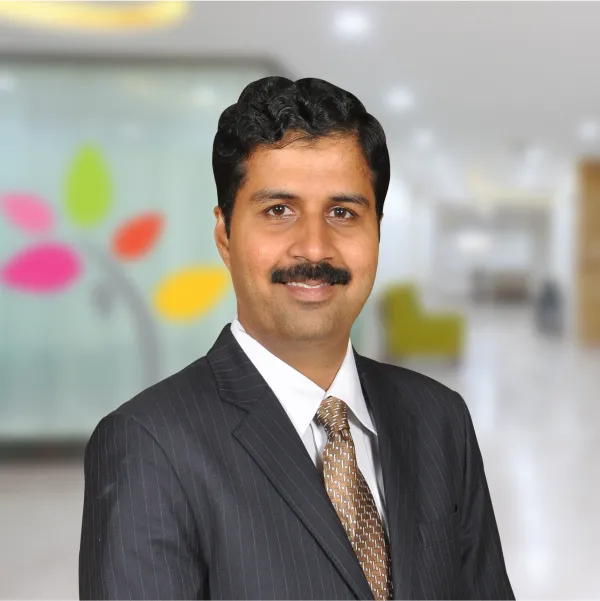Advanced Cardiology Services for a Healthy Heart
Our expert cardiologists provide advanced heart care, diagnosis, and treatment to ensure optimal cardiovascular health and long-term heart wellness.
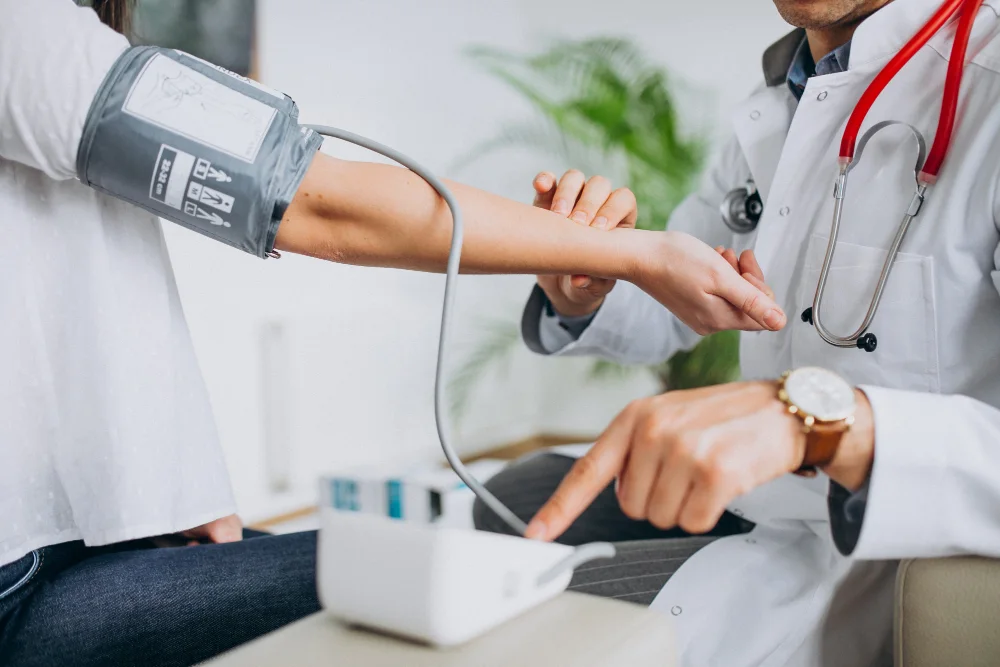
Cardiology
Cardiology is the medical specialty that focuses on diagnosing, managing, and treating diseases of the heart and blood vessels. The human heart is a vital organ that supplies oxygen-rich blood to the body, and even minor disruptions in its function can have serious consequences.
At VS Hospitals, Chennai, the Department of Cardiology provides world-class cardiac care through a combination of advanced technology, expert cardiologists, and evidence-based treatment protocols. The hospital specializes in both preventive and interventional cardiology, offering holistic solutions for all types of heart diseases from hypertension and arrhythmia to heart failure and coronary artery disease.
With a commitment to early detection, personalized treatment, and long-term wellness, VS Hospitals continues to set new benchmarks in cardiovascular healthcare.
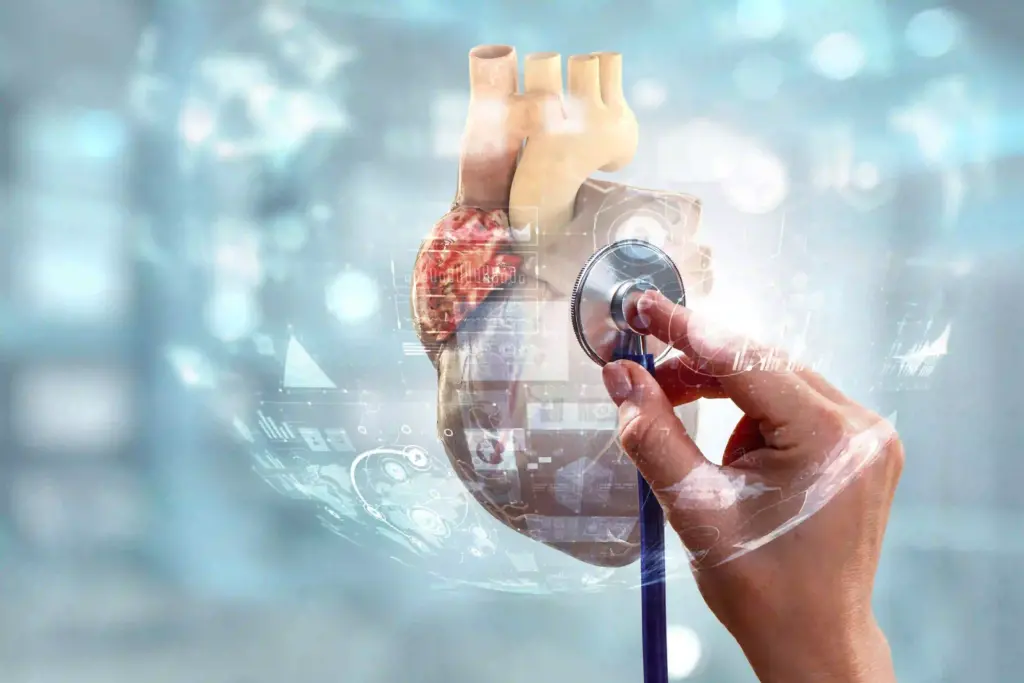
Early Detection Saves Lives
Early detection and treatment are crucial for improving the chances of survival. If you notice any concerning symptoms, consult a healthcare provider immediately.
Signs and Symptoms
Chest Pain or Discomfort
A tightness, heaviness, or pressure in the chest could indicate angina or an impending heart attack.
Shortness of Breath
Difficulty breathing during rest or exertion suggests heart failure or valve disorders.
Irregular Heartbeat (Palpitations)
Skipping or fluttering sensations in the chest may signal arrhythmias.
Fatigue and Weakness
Reduced energy levels are often linked to poor heart pumping efficiency.
Swelling in Feet or Abdomen
Indicates fluid buildup due to congestive heart failure.
Dizziness or Fainting
Caused by irregular heart rhythm or inadequate blood flow to the brain.
Persistent Cough
Especially at night, may result from fluid accumulation in the lungs.
Nausea or Sweating
Commonly occurs during heart attacks, particularly in women.
Pain Radiating to Arm, Neck, or Jaw
A classic symptom of blocked coronary arteries.
Blood in Urine
Hematuria - pink, red, or dark urine, the most common symptom
Frequent Urination
Feeling the need to urinate frequently, even when bladder is not full
Painful Urination
Experiencing pain or burning sensation while urinating
Back or Pelvic Pain
Pain that occurs as the cancer grows and spreads
Unexplained Weight Loss
Significant weight loss not related to diet or exercise
Fatigue
Feeling unusually tired or weak without a clear cause
Meet Our Expert Cardiology Specialists
Risk Factors
Smoking
Smoking is one of the leading causes of bladder cancer. Chemicals in tobacco smoke can damage the lining of the bladder, increasing the risk.

Gender
Men are at a higher risk of developing bladder cancer than women.

Chronic Bladder Infections or Inflammation
Conditions such as bladder infections and long-term bladder inflammation can increase the risk.

Exposure to Chemicals
Prolonged exposure to certain chemicals, especially those used in the dye industry, rubber production, and chemical manufacturing, increases the risk.

Unhealthy Diet
High intake of salt, sugar, and trans fats increases cholesterol and blood pressure.

Lack of Physical Activity
Sedentary lifestyles weaken cardiovascular endurance and lead to obesity.

Smoking
Damages blood vessels and significantly raises the risk of coronary artery disease.

Excessive Alcohol Consumption
Can elevate blood pressure and contribute to arrhythmias.

High Blood Pressure
Puts constant stress on heart muscles and arteries.
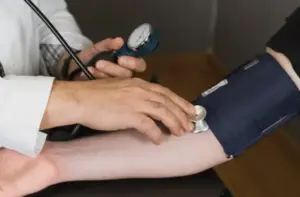
Diabetes
Leads to damage of blood vessels and doubles the risk of heart attacks.
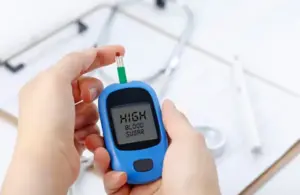
High Cholesterol
Causes plaque buildup in arteries, leading to atherosclerosis.

Obesity
Strains the heart, raising the likelihood of heart failure and hypertension.

Stress and Anxiety
Trigger hormonal changes that negatively affect heart rhythm and pressure.

Family History
Genetic predisposition to heart disease increases lifetime risk.

Age and Gender
Men are more prone to early cardiac issues, while risk rises in women post-menopause.

Cardiology
Heart-Healthy Diet
Prevention
Diagnosis
Key Services
Key Facilities
- Go for good fats: Choose olive oil, nuts, and avocado instead of trans fats.
- Cut down on salt: High sodium levels raise blood pressure.
- Load up on fiber: Include fruits, vegetables, and whole grains daily.
- Limit sugar and refined carbs: Prevent weight gain and diabetes risk.
- Stay hydrated: Water keeps blood flowing smoothly.
- Control portion sizes: Overeating can strain the heart and digestive system.
Our dieticians work alongside cardiologists to create personalized meal plans that promote recovery and long-term heart health. Patients undergoing cardiac rehabilitation receive tailored nutrition guidance to maintain optimal weight and cholesterol levels.
Heart disease is largely preventable when approached with consistent lifestyle management and medical guidance.
Preventive Measures Include:
- Regular exercise: At least 30 minutes of brisk activity daily.
- Quit smoking: Reduces risk of coronary artery disease by over 50%.
- Manage stress: Practice mindfulness, meditation, or yoga.
- Monitor blood pressure and cholesterol: Regular check-ups at VS Hospitals.
- Maintain a healthy weight: Prevent obesity-related cardiac strain.
- Control blood sugar: Vital for diabetic patients to avoid heart complications.
- Limit alcohol: Moderate consumption keeps triglycerides in check.
- Get adequate sleep: Poor sleep is linked to heart rhythm disorders.
At VS Hospitals, preventive cardiology is not an afterthought — it’s a central part of our approach. Our Heart Wellness Program combines medical screening, dietary advice, fitness coaching, and behavioral counseling to help patients take charge of their cardiac health.
Timely and accurate diagnosis is the foundation of successful heart treatment. VS Hospitals is equipped with advanced diagnostic tools and skilled specialists to evaluate every aspect of cardiac function.
Diagnostic Procedures Include:
- Electrocardiogram (ECG): Detects heart rhythm abnormalities and early signs of heart attack.
- Echocardiogram (Echo): Uses ultrasound imaging to assess heart structure, valves, and pumping ability.
- Treadmill Test (TMT): Evaluates how the heart responds to stress or exercise.
- Holter Monitoring: A 24-hour ECG recording to detect intermittent arrhythmias.
- Cardiac CT and MRI: Provides detailed 3D images of heart and blood vessels.
- Coronary Angiography: A dye-based test that visualizes blocked or narrowed arteries.
- Blood Tests: Checks cholesterol, triglycerides, and cardiac enzymes to detect heart damage.
- Chest X-Ray: Identifies heart enlargement and fluid buildup in lungs.
- ABI Test (Ankle-Brachial Index): Measures blood flow and detects peripheral artery disease.
- Cardiac Biomarker Tests: Measures troponin and BNP levels to diagnose heart attack and heart failure.
Every diagnostic result at VS Hospitals is analyzed by a multidisciplinary team of cardiologists, radiologists, and cardiac technicians to ensure precision and effective treatment planning.
The Cardiology Department at VS Hospitals offers a complete range of cardiac care from preventive heart screening to complex surgical interventions. Its advanced cardiac facilities are designed to cater to both emergency and chronic heart conditions with utmost accuracy and compassion.
Comprehensive Services Include:
- Preventive & Interventional Cardiology: Lifestyle modification, angiography, angioplasty, and stent procedures for heart health.
- Cardiac Surgery & Recovery Support: Pre-operative evaluation and post-surgical care for bypass and valve surgeries.
- Heart Failure & Arrhythmia Management: Advanced medication, pacemaker implantation, and electrophysiology studies.
- Coronary Artery & Valve Disease Treatment: Balloon angioplasty, stent placement, and valve repair or replacement.
- Hypertension, Lipid & Rehabilitation Clinics: Blood pressure control, cholesterol management, and post-surgery recovery programs.
- Emergency, Pediatric & Geriatric Cardiology: 24/7 heart emergency care with specialized treatment for children and seniors.
With state-of-the-art cath labs, dedicated cardiac ICUs, and the best interventional cardiologists, VS Hospitals provides world-class cardiac solutions under one roof.
VS Hospitals, Chennai, is recognized as one of Tamil Nadu’s top cardiac care centers for its cutting-edge facilities and patient-centered approach.
World-Class Cardiology Facilities Include:
- Advanced Cardiac Cath Lab: Real-time imaging for angioplasty, pacemaker insertion, and emergency cardiac procedures.
- Dedicated Cardiac ICU & Emergency Response: 24/7 monitoring and immediate intervention for critical heart patients.
- Non-Invasive & Diagnostic Cardiology Unit: Equipped for echocardiography, TMT, stress testing, and imaging services.
- Hybrid Operating Theatres & Life Support Systems: Seamless diagnostic-to-surgical transition with advanced patient support.
- Cardiac Rehabilitation & Physiotherapy: Personalized recovery programs to strengthen the heart post-surgery.
- Telecardiology & In-House Support: Remote heart monitoring, virtual consultations, lab, and pharmacy facilities.
Every patient at VS Hospitals receives personalized care supported by compassionate nursing, advanced equipment, and round-the-clock cardiac supervision.
Top Medical Facilities at Our Multispeciality Hospital – Here’s What Makes Us Different!
Ready to Begin Your Heart Care Journey? – Expert Cardiology Services
Learn More About Cardiology Procedures
Frequently Asked Questions
VS Hospitals offers 24/7 emergency cardiac care, advanced cath labs, and expert cardiologists specializing in both preventive and interventional procedures. The hospital provides holistic heart health management with personalized attention and world-class technology.
Yes. VS Hospitals performs minimally invasive procedures such as angioplasty, stenting, and valve repair using the latest interventional technologies. These techniques reduce pain, shorten recovery time, and ensure faster return to normal activities.
Cardiologists at VS Hospitals focus on preventive care through routine screenings, healthy diet plans, and lifestyle modifications. Regular heart check-ups, blood pressure control, and stress management programs significantly lower the risk of future cardiac complications.

